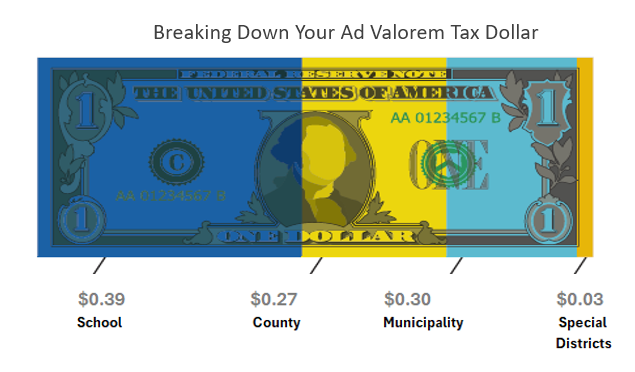After listening to residents voice their outrage over a rate hike to help pay for fire department services, the Ocoee City Commission unanimously adopted the new assessment on July 15, but just for the next fiscal year. The commissioners, who were sympathetic to their constituents, said the city is facing dwindling revenue sources to pay for the same service levels and promised to use the year to determine how they can trim the budget, maintain those levels and improve government transparency and accountability.
Beginning Oct. 1, the start of the new fiscal year, the fire protection assessment rate per fire protection unit will be set at $139.23 — double the current rate of $69.50 in place since 2014 — for all assessed properties in the city.
Michael Rumer, the city’s assistant city manager, said the fire assessment is “an equitable way” to help pay for fire services (except for advanced emergency medical services). “It’s spread across every person that has a property, every property that has a building. It's not based off the value of your land and the value of your building,” he said.
Under the new rate, a 1,200-square-foot property would be charged $205.65 per year, while a 4,500-square-foot property would be assessed $411.30 annually. A 10,000-square-foot property would be assessed $616.95. Ninety-one percent of single-family houses will be paying between $205 and $342, according to Sandra Neubarth, infrastructure and capital projects director with city consultant Anser Advisory.

The non-ad valorem tax is expected to raise about $4.4 million, which would cover about one-third of the Ocoee Fire Department's $13.7 million annual budget. The remaining two-thirds of fire protection services would be paid from the general fund.
Some residents seemed resigned that they had to pay increased costs, referring to the fire fee as a “necessary evil,” while others were downright angry their wallets were being tapped.
“I'm vehemently opposed to any additional assessments," said resident Ralph Jones, who noted he was a recently retired “building official” and had worked for the city of Ocoee from 2004 to 2009. He said the fire assessment fee is about 10 percent of his property taxes. “That’s a big hit.”
Like the residents, Mayor Rusty Johnson and his fellow commissioners said they were frustrated and unhappy as well that the city’s taxes and fees are rising for the same level of service. Throughout the hearing, elected officials and city staff said that Ocoee must offer salaries competitive with neighboring communities and Orange County to retain fire and police personnel. The police and fire departments are the city's top expenses.
“You don’t raise the salaries and you don’t have employees. You don’t get them. They’re not coming,” said Johnson, who told attendees that he appreciated their opinions. “I know it’s aggravating.”
Officials also said the city faces other financial pressures, such as ongoing discussions in the state legislature to eliminate or significantly reform property taxes and last year’s passage of Amendment Five, which ties the state’s second homestead exemption to the annual consumer price index, potentially providing homeowners some tax relief while reducing funds available for city services. “We are in the time of greatest uncertainty that we’ve had in my career as far as what the state is currently doing,” said City Manager Craig Shadrix. He said the state is discussing property tax reform "without talking about doing anything to supplant what they're taking away from local government, the bulk of which is used to pay for police and fire."
City officials also pointed out that residents pay a significant amount of property taxes to Orange County, about 27 cents on the dollar, almost the same amount that goes to Ocoee. However, they said the city doesn’t see nearly such a return in terms of improvements or assistance from the county. Shadrix said that Ocoee has petitioned the state for sovereignty and is working with other municipalities and legislative representatives to address the issue. "That's where we think the reform has to happen," he said, adding that the city requested that Tallahassee consider legislation for dedicated millage for public safety. "Then we could back way off what our millage is."

Still another issue is a new state law that reduces firefighters’ workweek to 42 hours, down from 56, which aims to improve their mental and physical health. As a result, each shift would work 24 hours on and then get 72 hours off rather than 48 hours off. Ocoee officials said this means they would have to add another shift — 21 firefighters — to cover the city, resulting in about $2 million in additional costs.
Before the commission adopted the fire assessment rate resolution, Commissioner Scott Kennedy, who represents District 1, proposed the city “go back to the drawing board” and create a dedicated fire fund that would pay for 100 percent of fire department services. He suggested taking $9 million from the general fund and lowering the millage rate to reduce property taxes.
“I just think It would be much simpler and more transparent,” said Kennedy about the creation of a separate fund for fire protection services.
However, city staff said that would require a new study that the commission would have to consider and property owners would all need to be notified about a new rate. They indicated that there wasn’t enough time to do all this before the start of the next fiscal year. Kennedy’s motion to create a fire fund failed.
The Ocoee Fire Department responds to about 7,600 incidents annually, including nearly 6,000 EMS calls, which account for about 78 percent of all calls. “The price of providing service has just jumped tremendously over the last six years,” said Fire Chief Tom Smothers. He said staying within the department’s budget “has been a challenge.”
Of the department’s current $13.7 million total budget, about $10.1 million is comprised of salaries, benefits, overtime, and other line items, and $2.5 million represents the operating budget. But it’s the $1.1 million capital budget that will be strained over the next several years.
Smothers said the department will eventually have to purchase a new fire engine at a cost of about $1.2 million to replace increasingly aging and unreliable engines. He said the last engine was purchased just four years ago for $578,000. The department is also planning to acquire self-contained breathing apparatuses—the oxygen tanks firefighters strap on that allow them to breathe when fighting fires—for nearly $450,000; a marine rescue boat for around $70,000; and handheld radios for more than $220,000.
Shadrix told commissioners that if the city didn’t pass the proposed fire fee increase this year, then it would have to hike the millage rate to keep pace with higher police and fire expenses.
During the July 15 hearing, several residents were upset that the fire protection assessment had been doubled after a decade, rather than being gradually increased over that period. Shadrix, promoted to city manager a year ago following the retirement of longtime City Manager Robert Frank, conceded that gradual increases would have been preferable.
“I get a little upset because I am a disabled veteran on a fixed income,” said a man who said he lived in the Vineyards neighborhood. “And I watch every dollar that I spend. And when you pop me with another 50 bucks a month … over a year, that's what my assessment would be.”
Residents also expressed mistrust that the rate was being applied fairly and equitably and that homeowners are disproportionately paying for most of it.
One longtime resident asked whether residents of apartment buildings would be assessed a fire fee. Shadrix explained that apartment building owners are assessed the fee based on the buildings’ square footage. “[Landlords] might have deep pockets and be willing to eat that, but most landlords for a large complex are going to pass that on in the form of an increase in rents to their tenants,” he said.
She also asked whether the assessment calculation was done before Ocoee bought out the Forest Lake Golf Course for $4.5 million in April after the city claimed the owners didn’t live up to the terms and standards of the land-lease agreement. Johnson said the city will recoup the money because six companies are currently bidding on managing the course. In any case, he added that the golf course falls under a separate fund that can’t be tapped for fire services.
Another resident said Ocoee’s growth has largely benefited companies like Walmart and Publix. “Why are we the ones and not them being assessed for these funds?” he asked.
Shadrix called it a good question, but reiterated that every property owner, including Walmart, Publix and the West Oaks Mall, is being assessed the fee. In answer to another resident’s question, he added that if the city used the millage rate, which is based on property value, to fund fire services, property owners with higher value houses would subsidize the cost of fire services for lower value houses. The fire fee is based on square footage so smaller homes and buildings pay less than larger buildings. That same resident also asked why the city doesn’t assess toll authorities since three toll roads go through Ocoee and “make a lot of money.” Shadrix called that a “great idea” and said the city should ask the state legislature to set aside revenue from those entities. He added that municipalities have also mentioned that revenue from the tourism development tax should be allocated for fire services.
District 2 Commissioner Rosemary Wilsen, who noted that she, too, is on a fixed income and doesn’t relish the thought of having to pay more, said that if people want services, they would need to pay for them. “But you know what? That one fee I pay is worth it. Well worth it,” she said.